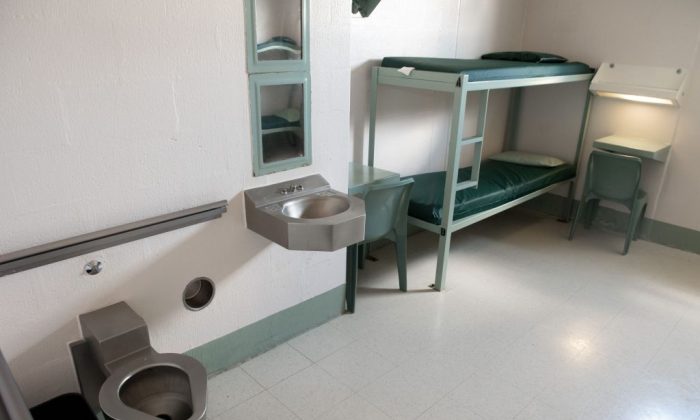FORT LAUDERDALE, Fla.—A pregnant Florida woman was left alone in a jail cell for nearly seven hours after asking for help and eventually gave birth alone, her attorney said Friday, May 3.
Public defender Howard Finkelstein demanded an immediate review of medical and isolation practices in a letter to Broward County Sheriff Gregory Tony.
“I am incensed and heartbroken after learning that a mentally ill client was forced to deliver her child alone in a jail cell,” Finkelstein wrote.
Finkelstein said his 34-year-old client complained of contractions and bleeding in the early morning hours of April 10. Jail staff attempted to contact an on-call doctor rather than take the woman to a hospital, the letter said. The doctor advised that he would check on the inmate when he arrived at the jail.
The attorney wrote that the Broward Sheriff’s Office was aware of the woman’s pregnancy since her March arrest on drug charges. He said medical records indicate the baby was not premature or unexpected.
A sheriff’s office report said a guard entered the cell after seeing the inmate with her newborn but didn’t mention the earlier requests for help. A nurse and doctor entered the cell to check on the mother and child, the report said. They were eventually sent to a nearby hospital. No injuries were reported
The sheriff’s office released a statement saying an internal affairs investigation was launched two days after the birth. Child Protective Investigations Section was notified, and the baby was placed with an appropriate caregiver, officials said.
Pregnant Women in Jail
According to The American College of Obstetricians and Gynecologists, on average 6 to 10 percent of incarcerated women are pregnant.
“Pregnancies among incarcerated women are often unplanned and high-risk and are compromised by a lack of prenatal care, poor nutrition, domestic violence, mental illness, and drug and alcohol abuse,” the group stated.
“Upon entry into a prison or jail, every woman of childbearing age should be assessed for pregnancy risk by inquiring about menstrual history, heterosexual activity, and contraceptive use and tested for pregnancy, as appropriate, to enable the provision of adequate perinatal care.”
According to the Federal Bureau of Prisons, there were 12,567 female inmates in federal jails, comprising 7 percent of inmates. There were 167,850 males in prison.

The criminal justice reform bill that President Donald Trump and a bipartisan group of Congressmen and Congresswomen passed earlier this month included a ban on the shackling of pregnant and postpartum incarcerated women, according to The Hill.
The act was also set to help women by calling for people in jail to serve their sentences in facilities within 500 miles from home, likely placing more incarcerated mothers closer to their children.
“The bill would also expand research into mental illness and ways to enhance alternatives to prison. It would grant federally incarcerated people the chance to participate in rehabilitation programs that help them acquire skills that assist in reentering society,” opinion contributor Topeka Sam wrote, calling it a great first step for criminal justice reform.

NTD News reporter Zachary Stieber contributed to this report.


